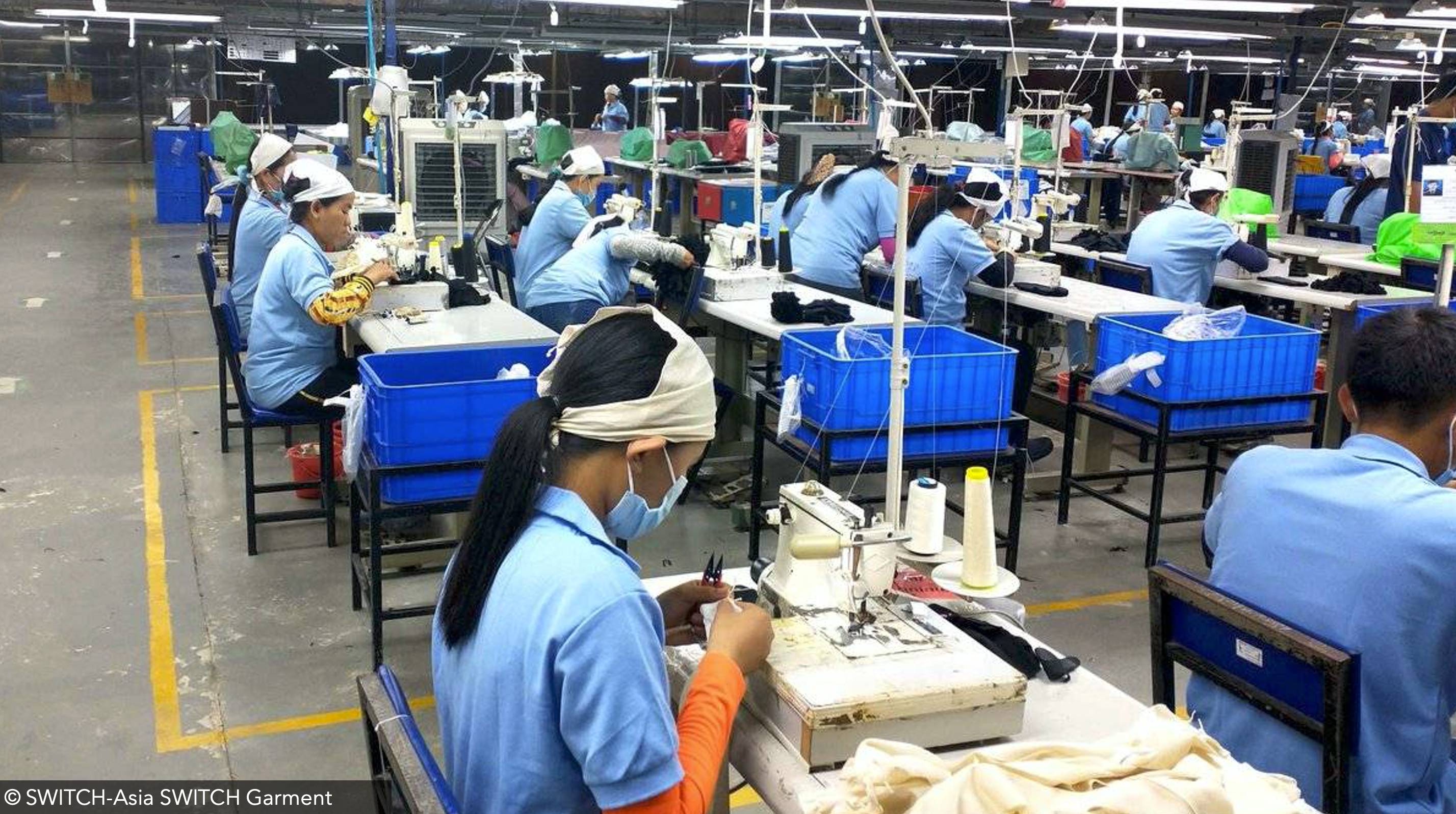
The General Directorate of Policy and Strategy (GDPS), Ministry of Environment Cambodia, with support from the European Union through the SWITCH-Asia SCP Facility, has conducted a Consultation Meeting and Capacity Building Workshop on Enhance Sustainable Consumption and Production (SCP) in the Garment Industry in Cambodia last 14-15 February 2022.
Two back-to-back events – the consultation meeting and training workshop - brought together decision-making stakeholders from government, business, and nongovernmental organisations to discuss the current policy environment, the status of waste management practices, existing and emerging SCP policy actions and practice in the garment sector in Cambodia.
Mr. Clemens Beckers, Attaché for natural resources and climate change from the Delegation of the European Union in Cambodia highlighted that “The EU plans to scale up significantly its engagement for a green and inclusive garment sector in Cambodia, jointly with EU Member States. This European engagement should help Cambodia to further integrate into international value chains and markets, and secure and increase decent jobs and green growth also in the future.”
The EU SWITCH-Asia Programme has provided support to the country to develop a SCP Roadmap and a policy analysis focusing on reducing waste in the garment sector. Government, industry and stakeholders need to work together to support the implementation of these policies and strategies towards a more impactful transformative change in Cambodia, stated by H.E. Vann Monyneath, Director General, General Directorate of Policy and Strategy, Ministry of Environment Cambodia.
Findings of the Garment Sector Policy Analysis prepared by the EU SWITCH-Asia SCP Facility experts from the Institute for Global Environmental Strategies (IGES) and Cambodian Education and Waste Management Organization (COMPED) were presented to get further feedback regarding the current state of the garment sector in Cambodia, including the policy and regulatory system, and how waste management practices are currently being implemented with specific regard to industrial solid waste and wastewater. The feedback received from the consultation meeting and workshop were analysed and incorporated into the final draft of the Garment Sector Policy Analysis Report to be published in March 2022.
The SCP Facility experts together with SWITCH-Garment Project Cambodia, Fabric Asia and the GDPS of the Ministry of Environment conducted the training to participants, providing science-based information and analysis of SCP best practices focusing on waste and wastewater management relevant for the garment sector in Cambodia, and presenting Cambodia’s SCP Roadmap and Circular Economy Action Plan.
According to Dr. Zinaida Fadeeva, Team Leader of the EU SWITCH-Asia SCP Facility, “the consultation meeting brought together different stakeholders that identified gaps and synergies in policies, not only focusing on waste management but on resource efficiency in the textile and garment sector and its connection to the SCP Roadmap”. The importance of governance was highlighted to enable transparency, accountability, and enforcement of policies using financial, regulatory, and market instruments in the sector.


